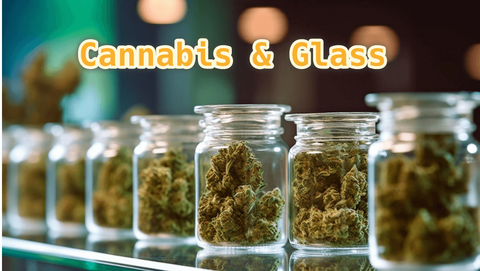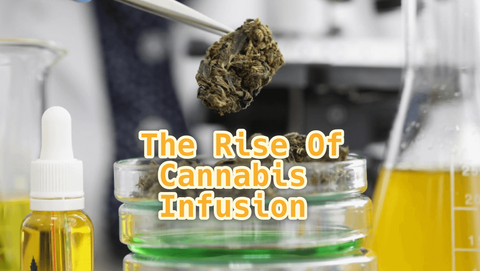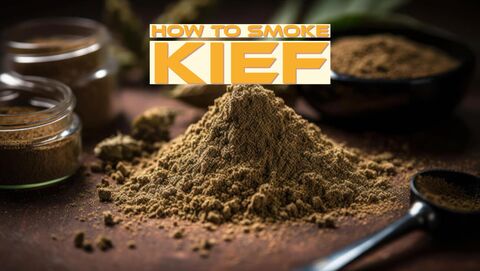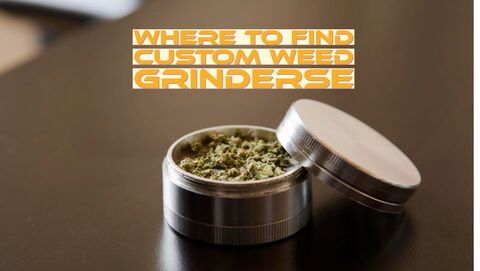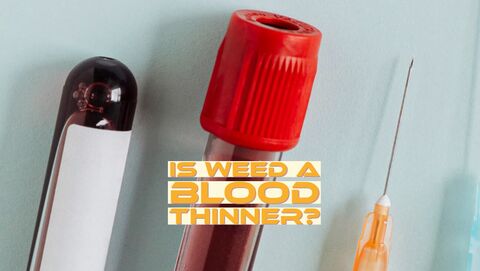Latest Blog Posts
Top rated
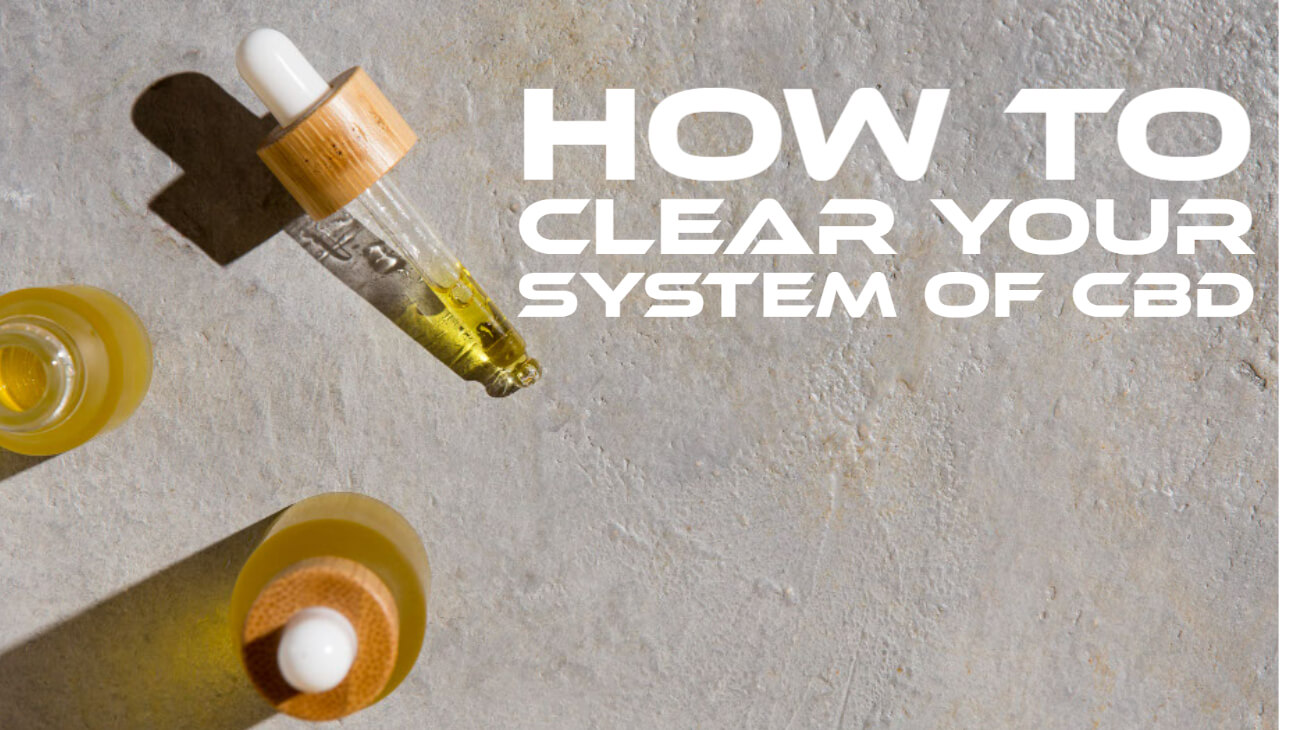
How To Clear Your System Of CBD
In recent years, CBD has seen a spike in popularity due to its numerous health benefits. CBD is an alternative medicine that is typically more successful than traditional over-the-counter and prescription pharmaceuticals, and it has fewer unpleasant side effects for many individuals. CBD is used to treat a wide variety of health problems.
Unfortunately, there is one problem: even though CBD is legal at the federal level and in all states except Idaho, Nebraska, and South Dakota, standard drug tests to detect illegal THC frequently give a false positive result when CBD is present in the blood. This is because CBD interferes with the way that THC is metabolized in the body.
So you might be curious about how to quickly eliminate CBD from your body. This topic will be covered in depth in this article. Continue reading to obtain all the information you require to eliminate CBD from your body most quickly and seamlessly as possible.
What Exactly Is CBD?
Cannabidiol, often known as CBD, is one of the hundreds of naturally occurring compounds that are discovered in the cannabis plant. These compounds include other cannabinoids, terpenes, and flavonoids. After tetrahydrocannabinol (THC), which is well-known for its intoxicating and psychotropic effects, cannabidiol, or CBD, is the cannabinoid that is found the most frequently. Both can alleviate symptoms of anxiety, chronic pain, and inflammation, among other positive effects on one's health.
Cannabinoids and terpenes are found in varying amounts in the plant depending on the growing conditions and the plant's genetic makeup. There is a wide range of THC concentrations among cannabis flowers, with an average of 15-25%. On the other hand, cannabis products are only allowed to have a THC content that is less than 0.3%, which is the lowest amount that will not result in a positive drug test or intoxication.
Analyzing The Differences And Similarities Of CBD And THC
Since it is a non-toxic cannabinoid and may have medicinal applications, cannabidiol has recently gained popularity. Cannabidiol, found in high quantities in the cannabis plant, has been demonstrated to be beneficial in treating a range of physiological and psychological conditions.
People who suffer from chronic pain, anxiety, and other mental health issues may find relief via the use of CBD. CBD has anti-inflammatory qualities, which make it a potentially useful treatment for a wide variety of conditions. The anti-inflammatory and pain-relieving effects of CBD have been demonstrated in several pieces of research. CBD medicines are also garnering interest from well-known educational and research organizations located all over the world.
Cannabidiol, often known as CBD, and delta-8-THC share many chemical similarities. They also bind to CB receptors, which are present in various locations throughout the body. You will gain a better understanding of how CBD works, as well as how long it remains in your body.
Hemp and marijuana are two separate forms that can be derived from the cannabis plant.
What are the most significant aspects that differentiate the two? Marijuana has extremely high levels of THC, whereas cannabis has somewhat high levels of CBD. Because of this, the only source that can properly produce CBD products is cannabis. While this is going on, THC-controlled products are being developed from marijuana.
%20(1).jpg?1667934771366)
CBDA and THC are the primary cannabinoids that are found in cannabis, and these cannabinoids are mostly located in the plant's flowers, leaves, and stems. Because there is a significant concentration of CBD in industrial hemp, CBD oil can be extracted from hemp seeds.
Despite the fact that the blooms of the two plants appear to be the same, the cannabinoid profiles of the two plants are considerably different. This is because CBD shares structural similarities with THC.
Due to the high degree of similarity between CBD and THC, both substances stay in the body for roughly the same period of time. Because of the great degree of similarity between these cannabinoids, human bodies store and process them in the same way, which means that CBD can be found in the same manner as THC. Urine testing could give a false positive result for THC if you just consume CBD.
Product Types That Contain CBD
It is important to be aware of the many forms of CBD products available to reduce the likelihood of failing a drug test. The following are the primary items that you ought to think about purchasing:
Full Spectrum CBD
It's important to investigate the origin of the full-spectrum items (hemp or cannabis). Products that include full-spectrum CBD include all of the components naturally present in the plant, including terpenes, flavonoids, and other cannabinoids like THC. Generally speaking, these goods are generated from the marijuana plant. However, full-spectrum CBD extracted from hemp should only contain less than 0.3 percent of the psychoactive cannabinoid THC.
CBD With A Broad Spectrum
The only difference between full-spectrum CBD and broad-spectrum CBD is that the latter contains THC, and the former does not. In addition to these additional cannabinoids, broad-spectrum CBD also includes terpenes and flavonoids.
CBD Isolate
Pure CBD that has been powdered or crystallized is what is found in CBD isolation. Additionally, you can get it in the form of CBD oil or tincture. Isolates of CBD are often derived from the cannabis plant and do not include any trace amounts of THC.
What Kind Of Effects Does CBD Have On The Brain?
Research conducted in the 1990s on THC ultimately led to the discovery of the endocannabinoid system (ECS). Researchers have found that human bodies produce chemicals similar to cannabinoids, compounds found in the cannabis plant.
%20(1).jpg?1667934846461)
These molecules are helpful to the immune system, but they are damaged as they perform their function. Receptors for the endogenous cannabinoid system can be found all over the body, including in the central nervous system (CNS). THC seems to bind to these receptors, but CBD either does not attach at all or just faintly does so. CBD has even been shown to counteract the effects of THC, thereby making them less potent.
CBD is known to influence the release of neurotransmitters in the brain, which are known to affect various processes, including pain, anxiety, and sleep.
How Does CBD Work?
The endocannabinoid system commonly referred to as the ECS, is at the center of the effects that CBD has on both the body and the mind. The endocannabinoid system (ECS) is made up of a wide system of neurotransmitters that influence the body's functioning in various indirect ways.
The endocannabinoid system is responsible for everything from the regulation of appetite and immunological function to the regulation of mood and the quality of sleep.
%20(1).jpg?1667934906739)
The body strives to achieve homeostasis, also known as a state of biochemical equilibrium, whenever the ECS is in any way disrupted from its normal state of equilibrium. Cannabinoids that are produced naturally by the ECS are referred to as endocannabinoids, whereas phytocannabinoids are the term used to describe cannabinoids that are received through dietary sources. However, the ECS is only capable of producing a relatively small amount of its own endocannabinoids, which is why CBD is necessary for these situations.
Through the enhancement of the endocannabinoid system's resources and the interaction with that system's neurotransmitter system, CBD can assist the body in better regulating its own resources. As a result, it has the potential to make people feel more relaxed, comfortable, and free of pain.
Is It Possible To Detect CBD With A Drug Test?
Cannabidiol, also known as CBD, is one of more than one hundred different cannabinoids that are naturally present in the cannabis plant. Marijuana and hemp are the two most common forms that cannabis can be cultivated into. Both are nearly identical in terms of the components that make them up. However, there are differences between them in terms of the concentration of their components.
Marijuana plants often have relatively high concentrations of tetrahydrocannabinol (THC), ranging from 10–15% on average. However, additional research and testing by breeders using a variety of different crosses has led to the development of hybrids that have an even higher concentration of THC.
Cannabis, on the other hand, has a THC level that is far lower (less than 0.3%), making it a more desirable option for use in industrial settings. On the other hand, this is balanced out by the significantly higher CBD level compared to marijuana. The CBD level in cannabis ranges from 10–20%, depending on the strain, although it's normally between the middle of those two numbers.
When it comes to determining whether or not someone has used cannabis, the THC content of cannabis is the component that these tests are primarily meant to identify. THC is a well-known psychoactive chemical that has the ability to alter one's state of mind.
You Need To Buy CBD Products From Reliable Merchants And Manufacturers
One study found that long-term use of marijuana can cause complex neuroadaptive changes in the brain, which can ultimately lead to a decrease in intelligence as well as neurological disorders. This study was conducted on rats.
Memory loss, difficulty learning and remembering things, difficulty solving problems, and behavioral issues can all result from this.
According to the Controlled Substances Act (CSA), marijuana is still classified as a Schedule I substance. This classification indicates that marijuana is prohibited by law and that most drug tests concentrate on THC rather than CBD.
The answer to the issue of whether CBD can be detected in a drug test is, therefore, no, as CBD is not often checked for in drug tests. The reason for this is that CBD is not psychoactive. On the other hand, there have been instances in which persons have failed these tests despite the fact that they consumed products that were labeled as being free of THC.
.jpg?1667935027181)
The explanation is simple: the CBD sector does not fall within the purview of the same rules and regulations that apply in other countries. As a result, it is very difficult to determine what is contained in a CBD product unless the product is examined by third parties who are not affiliated with the manufacturer.
Recent findings from independent laboratories indicate that many CBD manufacturers do not test their products. For instance, a study from the most prominent online CBD product review firm found that only 25% of CBD brands actually test their products.
Only 7% of those who have evaluated the purity or effectiveness of their products have also tested for the so-called "big three": microorganisms, pesticides, and heavy metals. In addition, 80% of the CBD products that were tested showed unacceptable tolerances. This means that the declared concentrations of cannabinoids (such as CBD and THC), which are required by industry standards, were not met by the products.
It is easy to comprehend how a person could register a positive result on a drug test despite the fact that they have consumed CBD "items" that do not include THC. Because of this, it is essential to ensure that the CBD products you purchase come from reputable vendors and/or manufacturers.
Several Factors Of The Time For CBD To Be Eliminated From The Body
How long CBD remains in the body is dependent on several factors. Among these are:
- In terms of administration, the dose of CBD taken has a direct correlation to how long it remains in the body. Because of this, the removal process takes more time.
- The more frequently CBD is taken, the more it accumulates in the body, and as a result, it remains in the body for a longer period of time.
- Diet, including what you eat, how much you eat, when you consume it, and what time of day you eat it, has a significant bearing on how long CBD remains in the body. If CBD is taken with an empty stomach, the substance will be metabolized and eliminated from the body considerably more quickly than if it were taken with a full stomach. Because CBD is better absorbed by fatty foods, the compound has a greater chance of remaining in the body for a longer period of time.
- Body features (such as weight, metabolism, water content, and so on) - The effects of CBD on individuals are going to be diverse depending on how their bodies are made up. People who have a higher metabolism, for instance, metabolize and excrete CBD more quickly than those who have a slower metabolism. This is in contrast to people whose metabolisms are slower.
- CBD can be consumed in a variety of different ways, the duration of its presence in the body being directly proportional to the mode of administration chosen. CBD aerosols, for instance, get in through the lungs and are rapidly absorbed into the bloodstream, which means that they do not stay in the body for a particularly long time. On the other hand, CBD, which is consumed in the form of edible pills, takes a more prolonged amount of time to be absorbed.
The Amount Of Time That CBD Remains In The Body Can Range
According to the findings of various research, the amount of time that CBD remains in the body can range anywhere from 1.4 hours to 5 days. For instance, a study that was conducted in 2018 and titled "Pharmacokinetics of CBD in humans" found that the half-life of CBD ranges from 1.4 to 10.9 hours when it is inhaled, 24 hours after it is administered intravenously, 31 hours when it is smoked, and 2 to 5 days when it is consumed.
These findings were backed up by a previous study that found oral CBD is totally removed from the body somewhere between 2 and 5 days after quitting smoking. Because of this, it can be assumed that CBD is expelled from the body in a little over a week.
How Long Is The Detection Period For CBD?
Studies have shown that CBD can be discovered in the body for up to 5 days after the last time it was used. CBD that is consumed orally has the longest half-life in the body, which is five days, whereas CBD sprays have the shortest half-life (1-11 hours). Therefore, the mode of administration appears to play a vital part in playing a crucial role in determining the length of time CBD remains in the body.

According to the findings of one study, it is extremely rare that an employee would have a positive result on a drug test after waiting for five days under the rules established by the federal government for drug testing in the workplace.
On the other hand, if you have ingested CBD products that also contain THC, your urine may test positive for the presence of the THC metabolite known as 9-THCCOOH.
How Long Does It Take For CBD Oil To Be Eliminated From The Body?
CBD does not provide the same intoxication effects that THC does, but it does build up in the body over time. The amount of time that CBD remains in the body is contingent on a number of different circumstances.
- The rate at which CBD is metabolized and, ultimately, removed from the body is largely determined by a person's metabolism.
- The length of time that CBD remains in the body is also impacted by the frequency with which CBD is used.
- Cannabinoid levels in the body are affected by the dosage, which refers to the total amount of CBD that is taken in one sitting.
- The method by which CBD is taken into the body determines both the effects of the cannabinoid and how long it remains in the system after being taken. The effects of CBD are felt nearly instantly when it is smoked or vaporized, but when it is consumed, they are felt between one and two hours later and continue to remain for that long.
A study that was conducted in 1991 examined the levels of CBD that were found in the blood after daily high doses. A total of 14 patients suffering from Huntington's disease took daily doses of 700 mg of CBD over a period of six weeks. After the completion of the treatment, the blood concentration of CBD dropped to only 1.5 nanograms per milliliter after one week, and then it became "virtually undetectable" after that.
The expected half-life of CBD when taken orally on a daily basis ranges between two and five days, according to a review of CBD research that was published in 2018. The duration of the half-life is different for the various methods of administration.
How Long Does It Take For CBD To Be Detected In The Urine?
There have only been a few pieces of research conducted on how long CBD may be detected in urine. Participants in a study that was conducted in 2016 were given several types of CBD-containing cannabis products, such as oils, capsules, and flowers, which contained the cannabinoid.

Two hours after ingestion, urine samples from all 15 subjects tested positive for the presence of CBD. After monitoring the condition of one of the individuals after the final day of usage, the researchers discovered that CBD was no longer detectable in the participant's urine after 24 hours had passed after the participant's last use.
Even though it has been demonstrated that CBD can be detected in the body over time, the vast majority of drug tests concentrate primarily on the presence of THC. The same refers to blood tests as well. This is a crucial point to keep in mind. As opposed to the amount of information available on THC, the amount of accurate information regarding how long CBD persists in the body is minimal.
How Long Does The Effect Of CBD Oil Remain?
How CBD is taken into the body plays a significant role in how quickly its effects are felt and how long they continue to be effective.
Consumption
The ingestion of CBD through the mouth is by far the most popular method. It is possible to take advantage of the possible therapeutic effects of this cannabinoid by placing a few drops of CBD oil directly into the mouth. This is undoubtedly a practical way to make use of the cannabinoid. On the other hand, those who want to feel the effects of CBD as quickly as possible could find that ingestion is not the most effective way.
When CBD oil is ingested, the cannabinoid does not enter the bloodstream as quickly as when it is smoked or vaped. Instead, it passes first through the digestive tract and then on to the liver, both of which are responsible for the breakdown of the substance before it is finally absorbed into the bloodstream.
%20(1).jpg?1667935582443)
According to studies, the process by which CBD chemicals are metabolized in the liver results in something that is referred to as a "first-pass effect." The concentration of CBD is eventually brought down to a level where it may be absorbed by the bloodstream and distributed to the various parts of the body by the circulatory system.
Even though taking CBD orally has gained popularity due to how simple it is to do so, this mode of administration may not be as efficient as inhaling the substance or using it sublingually. This is due to the fact that only 5% of CBD that is consumed actually makes its way into the bloodstream, which indicates that this method has a low bioavailability.
Sublingual: Superior Results Over The Oral Route
The results obtained through the sublingual method are generally considered to be superior to those obtained through the oral route. When using CBD oil in a sublingual fashion, a few drops are placed beneath the tongue and kept there for two to four minutes at a time. After that, it is forced into the tissues that are located behind the tongue and within the cheeks, and the remaining of it is ingested after it has been pushed into those areas. Because of this, CBD can bypass the digestive system and travel straight into the bloodstream through the oral mucosa, rather than having to first be processed by the liver after passing through the digestive system.
Inhalation: Another Efficient Way Of CBD Administration
Inhalation is another effective method for the administration of CBD due to the speed with which CBD is absorbed as well as the capacity of the lungs to transport CBD into the bloodstream. It makes no difference whether you take an inhalation from a CBD vaporizer or smoke a CBD-rich strain because the interaction with the body is the same in either case. When CBD is inhaled, the cannabinoids enter the body directly through the airways and go to the lungs. From there, they are immediately absorbed into the bloodstream and circulate throughout the body. When CBD is swallowed, the cannabinoids remain in the digestive tract.
How To Clear Your System Of CBD?
CBD, unlike many other compounds, does not get stored in fat cells. This indicates that CBD can leave the body via a variety of different pathways. Urine, feces, and perspiration are all examples of these. CBD can be eliminated from the body more rapidly if large volumes of water, meals high in fiber, and physical activity are consumed. The mentioned help many people to flush CBD.
There are more drastic methods available for eliminating CBD from one's system. To hasten the body's natural elimination process, they include the use of laxatives. Even while this is unpleasant, it has the positive effect of hastening the removal of CBD from the body. Take caution when utilizing this tactic. If you use laxatives too frequently, you run the risk of becoming dehydrated and experiencing constipation because it takes the digestive tract some time to recover from the effects of the medication.
%20(1).jpg?1667935861751)
Since CBD has a half-life that is very brief, it is possible for the majority of individuals to simply eliminate it from their bodies without making any changes to the way they live; all it takes is some time. The half-life, or the amount of time it takes for CBD levels to drop by 50%, varies from person to person, although it is typically somewhere between 24 and 72 hours after ingestion. This indicates that you should be able to eliminate the vast majority of CBD from your body within a week after your last use of the substance. This is good for you if you want CBD stay no longer. Some people wish flushing CBD from their body in order to pass their drug test.
The Process Of Removing CBD From The Body
It is not necessary to eliminate CBD from your body if you have acquired products that have been evaluated in a laboratory and come from a reliable vendor. However, if your CBD product does include some THC or if your source did not give a Certificate of Analysis (COA), there are a few different things you can do to get rid of the cannabinoids that are already within your body.
Stop Taking CBD
Stop consuming CBD as soon as you find out that you are about to be subjected to a drug test. Some products may be contaminated with THC, particularly if they do not come with laboratory test results. The vast majority of products should not contain high levels of THC in order to pass a drug test; nonetheless, some products may be contaminated with THC.
Drinking Water
It may be possible to remove some of the residues of cannabinoids that have been identified by drinking significantly more water than is typical. Only if you expect to be given a urine test, which is quite often, would drinking a lot of water be effective. Other common drug tests include those performed on the hair, saliva, and blood. So, water will be beneficial for you in your upcoming drug test.
If you are aware that you will need to submit to a drug test, you should increase the amount of water you consume each day and make sure to drink lots of water on the day of the drug test. Be careful not to consume an excessive amount of water on the day of the test, as some labs will not accept a sample that has been diluted to an excessive degree.
Adults in good health require around 15.5 glasses of water per day for males and 11.5 glasses of water per day for women in temperate climates, as stated by the National Academies of Sciences, Engineering, and Medicine of the United States. About 20% of daily fluid intake comes from foods and drinks other than water.
Consuming Fibers
When compared to a diet low in fiber, one that is high in fiber can assist in the rapid elimination of cannabis from the body. Cannabinoids are eliminated from the body at a faster rate when the fiber is consumed because it helps to improve bowel movement quality. At the same time, you should try to restrict the number of fatty meals you consume because these foods have the potential to disrupt the detoxification process. Whole grains, fruit, and vegetables are examples of foods that are high in fiber.
Exercise
It is believed that physical activity will speed up the process of cannabis detoxification. It is well established that THC can be found in the fatty cells of the body after use. The amount of times it is used determines how long it will be there. These THC metabolites can be flushed out of the body more effectively through physical activity and perspiration. Exercise might also prompt you to consume more water, which can speed up the body's natural detoxification process.
Products Used For Detoxification
There is a wide selection of detoxification items, including tablets, liquids, and other types, that you might use if you are concerned about performing poorly on a drug test. Their function is to remove cannabinoids from the body in order to provide this cleansing effect. Read up on the many possibilities before putting them to the test to determine when and how to take them, how long their benefits will last, and whether there are any other side effects.
Try A Diuretic
Drinking extra water has the same effect on your body as taking diuretics; both cause you to urinate more frequently. Be aware, however, that if you drink water at the same time, the color of your urine can change to a very pale shade. A reduced creatinine level is indicated by a pale color in the urine.
The breakdown of body tissues over time results in the production of creatinine as a waste product. When creatinine levels are high, it may be an indication that the kidneys are not filtering the blood as effectively as they should be, which may point to the presence of kidney diseases.
If your creatinine levels are low, it could also indicate that your body is having trouble producing enough creatinine. This could be a sign of kidney disease, an unhealthy diet, or kidney function that is hindered. Women typically have normal creatinine levels that range from 0.6 to 1.1 mg/dl, whereas men typically have normal creatinine levels that range from 0.7 to 1.3 mg/dl. You should see a medical professional if you are having any issues with your urinary system.
The Most Effective Method Requires Both Patience And Time
You may not want to hear this, especially if you are in a hurry to cleanse your body, but the most effective way to remove all traces of CBD from the body is to be patient and allow it to break down naturally. If you just stop taking CBD a few weeks before the time when you should have no CBD left in your body, you may enable your body's natural process to eliminate it. The strategies that were just discussed can help speed up the process, but stopping taking CBD altogether is the simplest way to do this.
The Detoxification Process And Adverse Effects
People who use cannabis frequently and for an extended period of time are at risk of developing a cannabis addiction. After a period of time during which the body has become accustomed to the effects of THC and CBD consumption, the individual may experience unpleasant withdrawal symptoms upon stopping the use of these substances until the body readjusts.
On the other hand, everyone responds differently to detoxification, and some people don't experience any withdrawal symptoms at all after they quit using cannabis.
Insomnia and headaches as the two symptoms of withdrawal from marijuana use that occur most frequently. Detoxing from cannabis may also cause the following additional negative effects:
- Depression
- Nightmares or vivid dreams that appear approximately one week after a person stops smoking and last for one month or more
- Animosity is a state of irritation
- Instability in one's emotions, ranging from rage to joy
- An inability to concentrate
- Sweating at night
- Lack of hunger and appetite
- Hands that are trembling or shaking
Do Detoxification Products Actually Work?
There are a number of products on the market that make claims that they can assist in flushing cannabis remnants from the body. These products include the following:
- Tablets
- Capsules
- Mouthwashes
- Shampoos
- Detox pills
It's possible that detoxification treatments won't work for you, depending on the kind of drug test you take. For instance, detox solutions that are primarily geared toward urine cleaning have the potential to contaminate the urine sample.
This is due to the fact that detoxification products that work on the urine also cleanse the kidneys. They are able to remove creatine and the natural density of the urine as a side effect of the THC removal process. Both of these things have the potential to provide the impression that the test was contaminated, which may require the individual to take the exam more than once.
The Bottom Line
In contrast to a lot of other substances, CBD does not get stored in fat cells. This suggests that CBD has a number of potential routes of elimination from the body. These include waste products, including urine, feces, and sweat. In order to speed up the elimination of CBD from the body, it is recommended to take big amounts of water, eat high-fiber meals, and engage in vigorous physical exercise.
More extreme measures can be taken to purge CBD from the body. Included in these methods is the use of laxatives to speed up the body's regular evacuation process. Though unpleasant, this actually serves to speed up the elimination of CBD from the body. Please use caution if you decide to use this strategy. It takes the digestive system some time to recover from the effects of the medicine; thus, excessive use of laxatives increases the risk of dehydration and constipation.
Due to its short half-life, CBD may be naturally flushed out of the body over time, allowing for its elimination by the vast majority of users without any alterations to their daily routines. Although the time it takes for CBD levels to decline by 50% varies from person to person, it is usually anywhere between 24 and 72 hours following ingestion. This suggests that the vast majority of CBD will be flushed out of your system within a week of your last use.
Disclaimer: This material is for informational purposes only and should not be relied on for legal, medical, financial, or any other form of professional advice.






